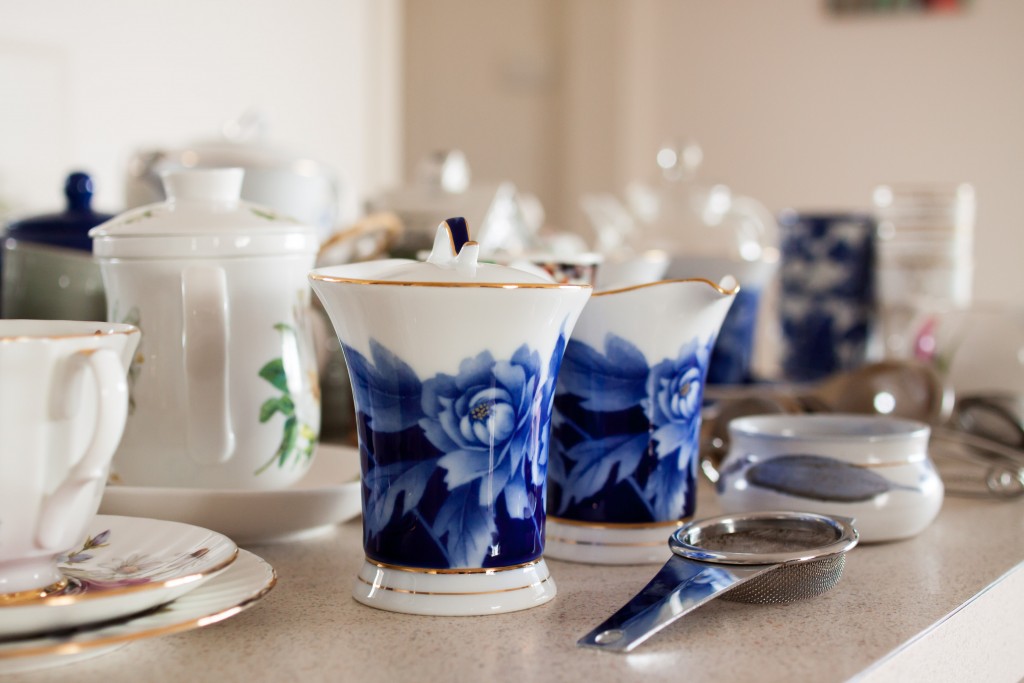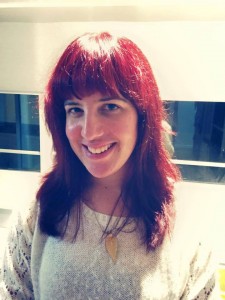
Brewing Community is a series of guest posts in which readers, writers, artists and fans are invited to share their experiences of community. Whether online or in person, these groups bring a great deal of support and sometimes stress to their members. The aim of this series is to share the joy and find ways to brew stronger communities. If you have some experiences you’d like to share, please let me know.
Today’s guest is Maureen Flynn: poet, author and fan. I had the great pleasure of catching up with Maureen at Conflux in October, where she spoke movingly on David McDonald’s Paying for Our Passion panel. Being a Doctor Who fan, she spent part of the convention cosplaying Missie and I always keep my eye out for her commentary on the latest episodes. Like me, she’s a candidate for the NAFF race this year (so if you enjoy her post here, please consider voting for her).
Why building community matters
When Elizabeth kindly asked me to guest post for this series, my head reeled. There are so many different places I could go with talking about my journey in being both separate and part of community. It started from my days as a young carer feeling like a fish out of water amongst other children, but there is also teenage days experimenting in online fandom and fan fiction during 2007-2011 as a form of escape and self-discovery. There is also discovering safe places to participate in community through blogging, involvement in local clubs and societies in the geek fandom space and, recently, cons and the speculative fiction community in Australia. Even, I now realise, organisations like my brother’s disability support provider, who I don’t need to justify myself to or explain myself to because they live and breathe not just disability every day, but also local relationships and the values that matter an awful lot to me. The truth is I can’t separate these disparate communities because they all provide me with the same thing. They keep me connected to people that I love and value and care about, and keep me connected to the people who love and value and care about me.
For me, sense of community starts with my carer role, with my experiences of isolation and difference because of that role, and my participation on the Helena Bonham Carter forum as a way to escape feeling different. I can tell you this without any shade of embarrassment: Helena Bonham Carter probably saved my life, helped me realise who I was at my heart’s core and helped me to be the writer I am now. Her fandom gave me permission to be weird and wonderful and to write like my life depended on it, no one judging my words. She was, and is, a wonderful role model: funny, smart, down to earth, and always honest about being herself. Her fans were creative, fierce, different, daring, pushing boundaries. They also told me I should never give up on my writing or apologise for who I or my family was. When I was part of that fandom, I made myself a promise: I would never be judgemental or unkind if I could help it, never exclude people because they are different, never worry about how others saw me or judged me, or do what people expected of me again. It set the tone for the range of communities I chose to be part of in later years.
Why does participation in my communities matter? There is an interesting discussion happening in the community care space as federal reform rocks the sector. That discussion is around two things that link back to community: inclusion and the concept of “the good life.” What does meaningful inclusion look like for Australian citizens and what does a good life look like? Is it the same for all? And how do people, especially marginalised and/or disadvantaged people, achieve it? These discussions are complex and there are no easy answers, but there is basic consensus on some of it.
- People who are connected to community are less isolated and less vulnerable
- People who are connected to community have greater social opportunities
- People who are connected to multiple communities are more likely to feel good about themselves and have greater resilience
It should be evident from both this post and my post for David McDonald that these statements hold true for me. Without the multiple communities I identify with I wouldn’t be the strong, resilient carer I am today. People in the speculative fiction community are sometimes surprised that I put so much effort into attending book launches, bringing along friends to events and participating in things like the Aurealis Awards, but for me it is a no-brainer because community works both ways. Let me give you two examples. In Melbourne, I met a bunch of Helena fans for the Tim Burton exhibition. One girl I met lived in the same LGA as me and we’d never known despite chatting on a forum. She didn’t have a big friendship network. I recognised that she’d fit right into mine. I invited her to a bunch of events and she’s now firmly ensconced in my friendship group. She paid it back by becoming my brother’s volunteer through his disability provider, enthusiastically supporting my brother to finish university and expand his social networks. Without Elise in my family’s life, I doubt my brother would be where he is today. I doubt I would have had half as much fun as I have had in the past few years at countless dress-up parties, movie nights, and this year, at a memorable “alternative valentine’s day” and a charity ball.
I almost didn’t attend this year’s Aurealis. I was feeling down for a number of reasons, largely relating to the carer role. I felt like no one in the writer community could really understand what I felt. The effort of even thinking about going all the way to Canberra was exhausting. At the last minute, I went. I was shocked by the amount of people who came to speak with me, to ask me how I was doing, to offer writing advice and titbits of knowledge. I had been an idiot to try to shut myself away from community. The more I did, the less I wrote and the less resilient I felt, the more isolated I became.
It’s interesting to me that the values about community I learnt from my HBC years still hold true today. It’s interesting that again and again different communities I am involved with have halted hard falls, offered new horizons, supported me, offered friendship and advice. I am often asked to speak with carers about reform and about caring for themselves. I give them this advice: find your own passions, don’t be subsumed by the caring role. Get out there and find community, because it will be your opportunity and your salvation, and because if you never try to put yourself out there, you will never know what might have been. I am beginning to see more and more that this advice applies beyond carers because here’s the thing: if people put into the community, the community puts back into you. Building community matters because community connects us together, unites us, reminds us of human relationships and why they matter. Without them the daily grind wears us down, plunges us into tunnel vision, reduces opportunity, and decimates social capital, leads us to despair and isolation and danger as we fall off cliffs we never needed to fall from. That’s why I’ll fight hard to support my communities. All of them. Because belonging to them matters to me and to countless others. Because as long as I’m part of communities I’ve chosen, I don’t have to be the isolated and frightened and timid person I was all of those years ago.
Maureen Flynn works with community care providers in disability and aged care as they navigate federal reform. In her spare time, she writes young adult speculative fiction novels and short stories, verse poetry and she has just ventured into writing crime. Currently, she is looking for a home for her YA fantasy manuscripts and is working on a crime novel and a verse novel about “the historical Merlin”. Maureen reviews speculative fiction novels at her WordPress blog, InkAshlings. Never one for saying no to a challenge, she also reviews genre books, films and TV shows and has interviewed authors for her blog. Her self-published verse novella, My Heart’s Choir Sings is available from Amazon and Smashwords. You can follow Maureen at her website, on Goodreads o rTwitter.

